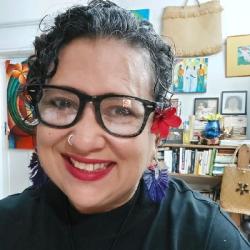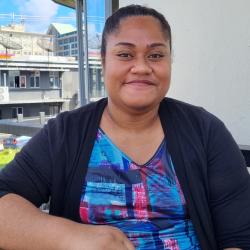Inter-generational feminist collaboration for transformative action in the Pacific
Take two Pacific Island women. Both living on the frontline of climate change. Both have experienced the first-hand destruction of intensifying cyclones. Both acutely aware of the slow-onset impact of climate change including prolonged drought, floods, loss and damage and the intersectional impact of COVID-19 through their work with a network of diverse women leaders and focal points, representing more than 100,000 women from across six Pacific Island countries.
One is younger and engaging for the first time in inter-governmental processes, the other has been engaging for several decades. Both representing the Shifting the Power Coalition (StPC) with a collective commitment to drive a transformative women’s rights and feminist agenda in disaster risk reduction and humanitarian action. Together amplifying the message for greater inclusive investment in Pacific Island women-led innovation and feminist finance models to transform climate action to climate justice.
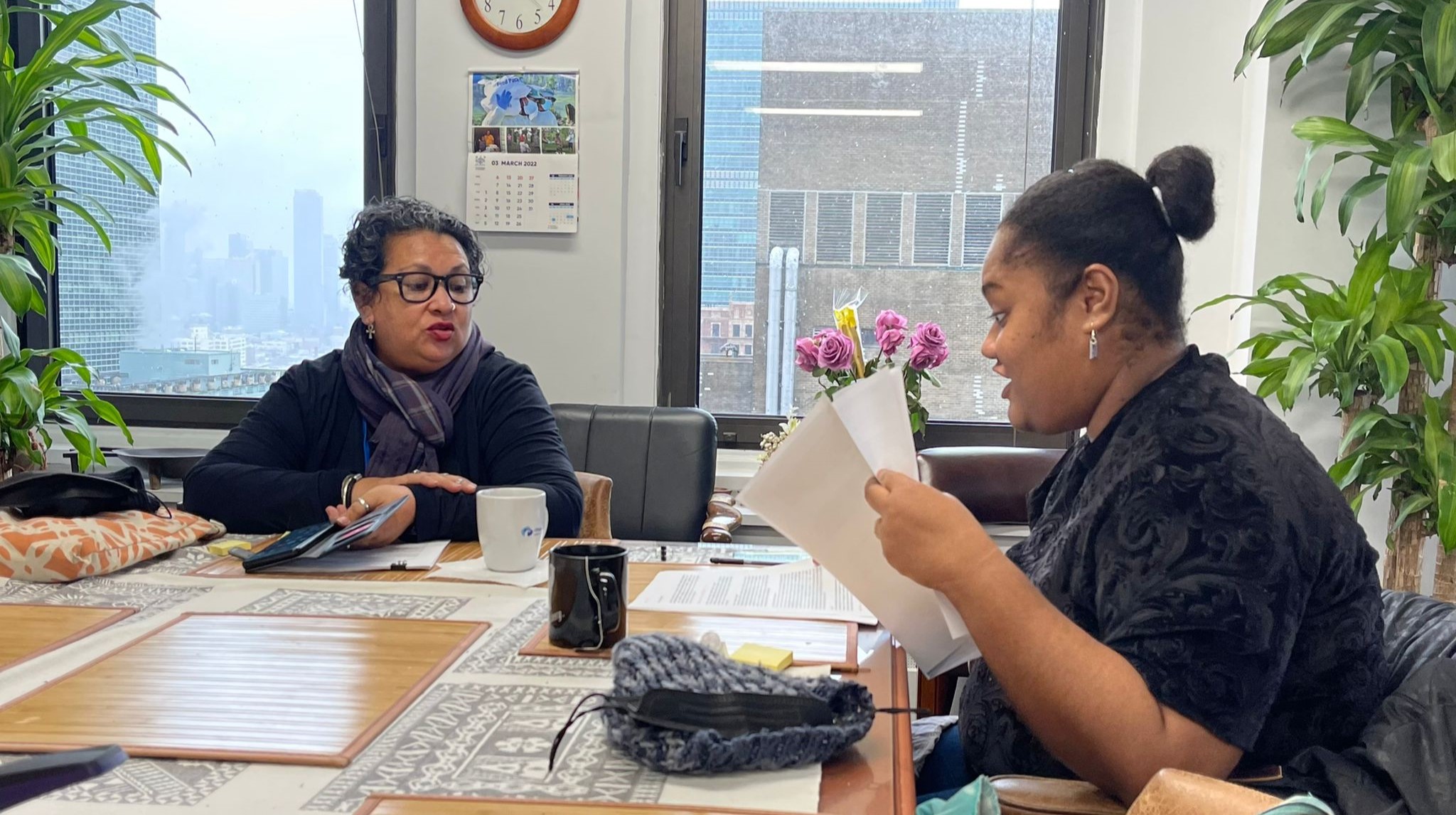
Sharon Bhagwan Rolls and Carolyn Kitione were the StPC’s inter-generational team for the 66th Session of UN Commission on the Status of Women and Global Platform for DRR. This is a critical aspect of the feminist principles of the Coalition to support learning and sustainable engagement within two distinct spaces of advocacy as Kitione explains:
“What I have learnt is that we can’t be deterred by technical and policy language. What we need to do is make time to understand the political frameworks so that our government officials understand how things should be working for us as Pacific Island young women. I am excited to be part of the preparation of the 5 Shifting the Power Coalition Young Women’s Steering Committee representatives who will be attending the Asia-Pacific Ministerial Conference on DRR (APMCDRR). We will be learning together so that we all feel confident to connect our authentic voice and local expertise to a ministerial process. One of the things I am also committed to ensuring is that ‘youth spaces’ are not masculine and heteronormative but inclusive for rural, disabled and LGBTQI+ young women.”
The UN system must be collaborating better with feminist networks and coalitions for sustained Inter-Generational Learning which can lead to greater diversity in representation:
“Our messages have been clear. All forward-looking strategies must be centred on women’s rights and gender equality,” explains Ms. Bhagwan-Rolls, adding that there is a need for greater recognition of innovation by Pacific Island women combining appropriate and accessible technology with traditional and indigenous knowledge.
This is aligned with the Women’s Resilience to Disasters (WRD) approach (UN Women’s gender equality accelerator) for which Sharon provides insights from the grassroot level as a one of four CSOs representatives and as a member of the WRD Programme Board. The WRD Programme works to build the enabling environment (including gender data, analysis, and knowledge) for gender-responsive resilient action.
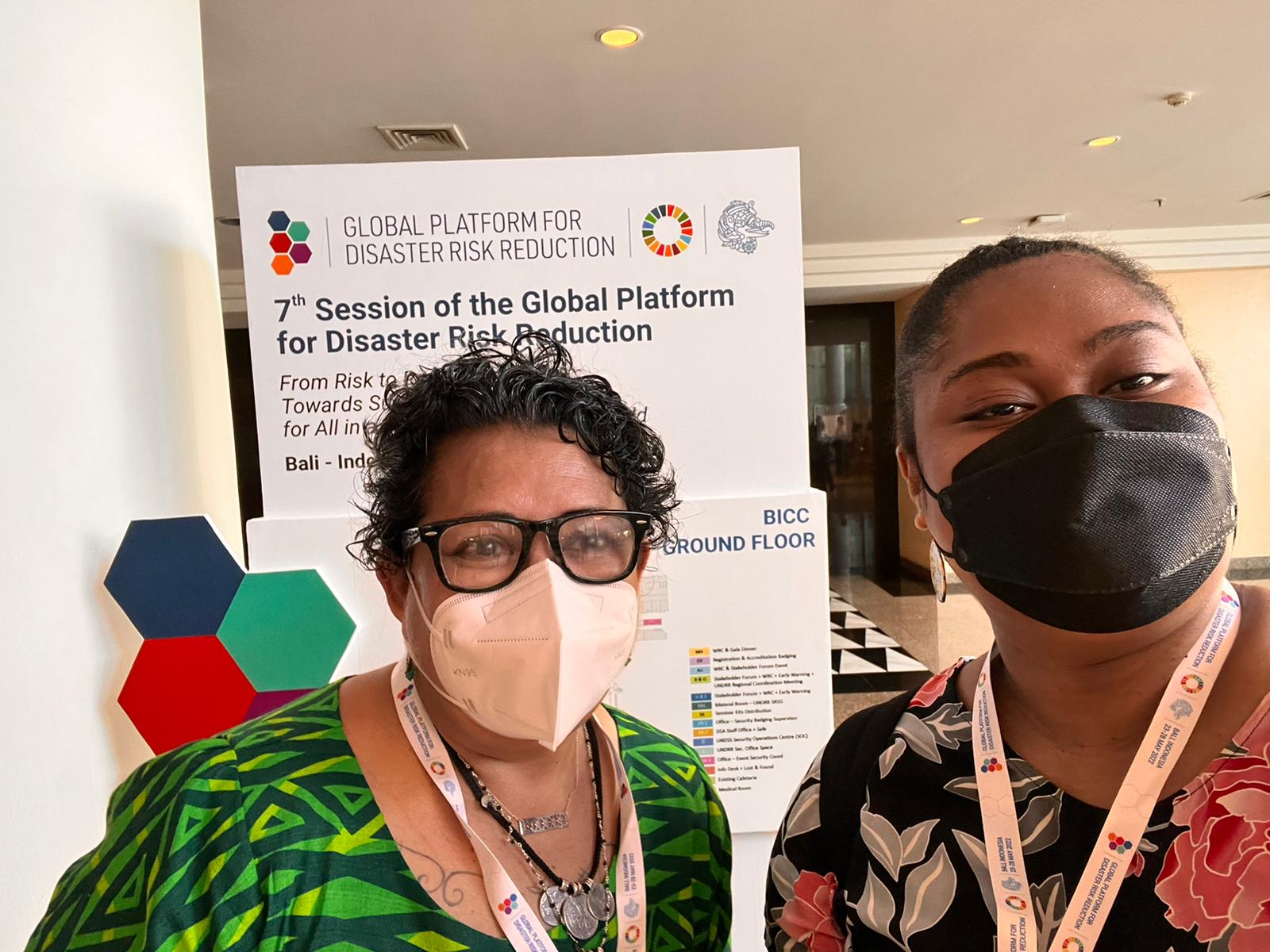
The StPC key recommendations include:
- Accountability to Gender Equality, Women’s Rights, and Inclusion. We call on the fulfilment of human rights, ensuring accountability for states’ obligations across all relevant environmental, climate, disaster risk reduction, and gender policy processes including the full breadth of the 2030 Agenda.
- Ensuring the full, equal, effective, and meaningful participation, representation, leadership as well as Women-Led innovation and organising in Multi Hazard Early Warning Systems / Climate Risk Early Warning Systems (CREWS).
- Feminist financing models demonstrating how the diversity of women’s organising can access resources when, how and where they need them.
- Enhancing Coherence in Inter-Governmental Processes.
Supporting a movement-led approach also ensures advocacy results in operationalisation and localisation when the conference ends adds Ms. Bhagwan-Rolls and it is also reaching spaces that traditionally may not be where the DRR or resilience discussions have taken place:
“We have amplified our recommendations to the Expert Group Meeting on SDG5 in preparation for HLPF 2022. We also engaged in regional inter-governmental processes linked to climate security and climate mobility, making the linkages with UNSCR2242. And it goes into collective learning and advocacy with partners and allies through the Pacific Islands Feminist Alliance for Climate Justice in the lead up to COP27.”
The StPC is an example of how with a dedicated focus on Gender Transformative Action for Responding to Climate Change and Disasters, Pacific Island women can demonstrate local approaches to driving the women’s rights and gender equality agenda in a way that values women's localised knowledge, leadership and collective networks, and tackles the harmful gender norms that continue to prevent women's full and equitable participation in disaster risk reduction and resilience.
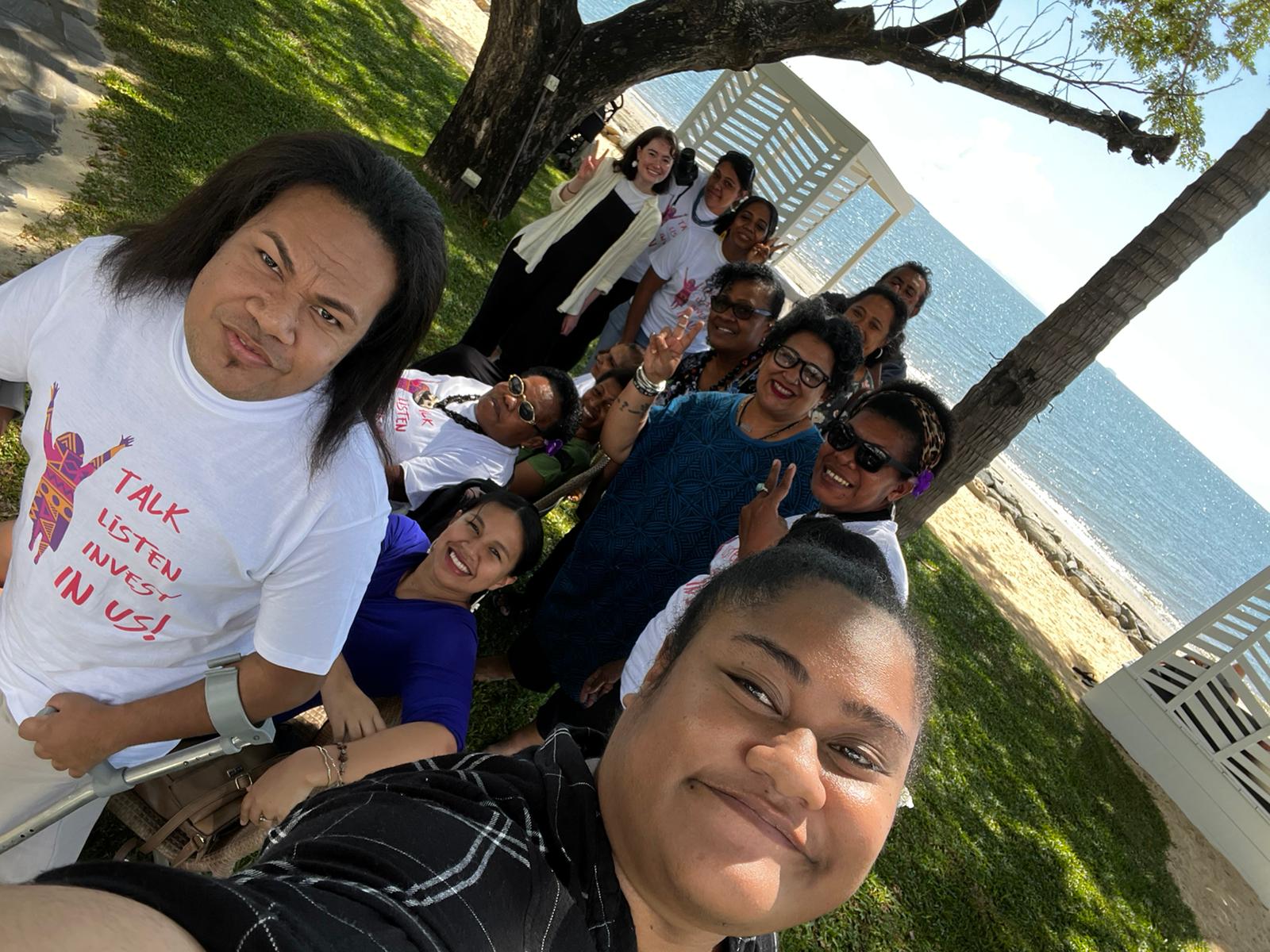
Collaboration with feminist coalitions and networks such as the StPC can support governments, national disaster management offices, and meteorological offices ensure they are driving national commitments to gender equality and human rights including women’s rights, and disability and LGBTQI+ inclusion and rights.
A shift is needed. It is time for women to be asked what information they need, how they can best access this, and how women in all their diversity can identify solutions to strengthen and inform the disaster management and climate change agenda. To drive more inclusive community-led approaches, solutions should not just address under representation in resilience decision making but to change the way things are done more broadly. This includes securing system-wide changes that also address the underlying drivers of risk – a key element of the Women’s Resilience to Disasters Programme. We need to shift the power on the disaster risk management and climate change agenda to drive inclusive, and community-led approaches.
Ultimately women’s locally led action has enabled us to continue to show that when we draw on the experience of our national and grassroots organisations and women and community networks, we can transform disaster risk management and national climate action – including disaster and climate change information systems.
Ms. Sharon Bhagwan Rolls, is the regional representative of Shifting the Power Coalition and one of the CSOs representatives and member of the Women's Resilience to Disasters Programme Board.
Carolyn Kitione is a learning coordinator of the Shifting the Power Coalition, convening the Coalition’s Young Women’s Steering Committee & supporting Pacific Island Feminist Alliance for Climate Justice.
